Striving for truth in the world of science
People
Adelaide-raised scientist Professor Waltraud (Trudy) Kriven has spent most of her adult life in the United States, making a name for herself in the field of high tech ceramics. But she says her success would not have been possible without the invaluable life lessons from her parents and the Josephite Sisters.
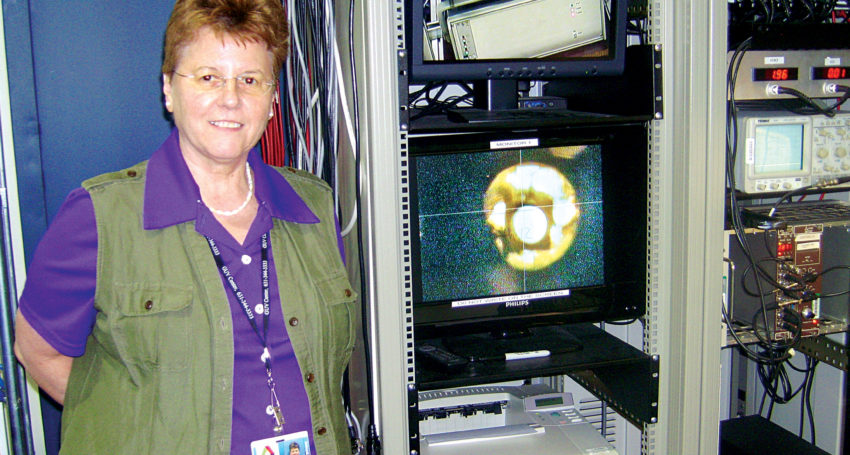
As a girl attending high school in the 1960s it definitely wasn’t ‘cool’ to be interested in science, but Trudy Kriven didn’t care what others thought and decided to follow her father’s advice to pursue her passion.
More than 50 years after graduating from Mary MacKillop College, the highly acclaimed scientist said although it had been hard at times forging a career in a male-dominated area she had never regretted her decision.
Advertisement
As a professor in the Department of Materials Science and Engineering at the University of Illinois, considered the premier engineering university in the USA, Trudy has devoted the past 20 years of her career to researching and teaching about the benefits of clay-based geopolymers. Just as the development of plastics changed the world, geopolymers are set to provide an environmentally-friendly solution to the use of cement.
Developing this cutting-edge technology is a lifetime away from her first foray into science in the lab at Mary MacKillop College, but the esteemed professor has never forgotten the important part her school and family have played in her success.
“The message my father (Franz) always told me was ‘don’t sell yourself short’ and become who you want to become,” she said from her home near Chicago.
“It is a real shame if girls feel that they have to squash their natural curiosity and talents to understand science to ‘pretend to be stupid’ just to fit in. I remember taking a stand to be myself and to ignore the rest of the world, if they wanted me to just be interested in ‘feminine’ activities.”
Trudy said like her mother, the Josephites had been a strong influence during her school years.
“My parents and the good Josephite nuns played a very strong role in forming my character and education. They gave me a strong Catholic faith and conscience, and above all a respect for the truth.
“The most influential teacher I had who led me to study science was Sister Teresita. She was just so great and had a lot of common sense about science and life in general. I think I was naturally interested in science and how things worked, but she unlocked my curiosity and gave my scientific interest wings.”
Despite the distance from home, Trudy has maintained a strong connection with Mary MacKillop College over the years. In 1984 she began sponsoring the college’s annual Science Prize and in more recent years her substantial financial contribution has been presented to the Dux and Proxime Accessit.
“One of the first things I did after submitting my PhD thesis in Physical and Inorganic Chemistry at the University of Adelaide in 1976 was to give a copy to the Mary MacKillop Library. I wanted to encourage other girls to show them that they could do whatever they put their minds to, including getting a PhD in science.”
Advertisement
Principal Kath McGuigan said the college appreciated that Trudy made time available during her busy work and personal schedule to visit and speak with students when she was in Adelaide.
“Her words offer inspiration to our girls and have helped inspire and encourage a number of them to continue working towards using the knowledge gained in their maths and science subjects at Year 12 level to pursue successful career paths in areas such as engineering, biomedical and health science, law, mathematical sciences, pharmaceutical research and drug development,” Ms McGuigan said.
“Through her achievements, Trudy has definitely been a positive role model to all MacKillop students. We are fortunate in having such a generous, thoughtful yet humble benefactor and supporter of our students.”
In discussing her work and faith with The Southern Cross, Trudy stressed that being a scientist did not preclude her from believing in God.
“Both are consistent with each other,” she explained.
“During my PhD years I had a ‘dark night of the soul’ experience when I questioned the meaning of life.
“I came to the conclusion that there was no rational purpose in life such as power, money, sex, academic performance or such, but rather it was a higher, irrational purpose of ‘love and happiness in all its forms’.
“Since God is love, truth and goodness, in all of its forms – for me, this became the purpose of my life.”
Together with her husband, Dr Richard Keane (a Rostrevor College graduate and Flinders University alumnus), Trudy regularly attends St Patrick’s Church in Urbana, south of Chicago, where they serve as lectors and Eucharistic ministers.
With her 70th birthday looming next year, Trudy said there were no plans for retirement as she forges ahead with potential applications of geopolymers.
“Currently we are developing composite ceramic geopolymers which could be fabricated as fire resistant panels or thermally insulating panels for housing, particularly where there are bushfires. Such structures could be folded up flat and say driven to a disaster area on the back of a truck. Once there, these disaster relief huts could be unfolded and set up as fire resistant shelters or temporary housing shelters.
“Another area of research on which we are collaborating with the CSIRO in NSW is to develop geopolymer containers of molten salts to store solar energy.”
As she explained, the salt mixtures melt under focused sunlight and when they cool into a solid, give out a packet of energy called the latent heat of fusion. Such packets of heat can be collected and used to generate electricity instead of burning coal.
“South Australia has access to large supplies of salts in Lake Eyre and much sunshine. So our goal is to develop 3D printed geopolymer cannisters to contain the molten salts and make electricity for Adelaide and South Australia in general. This technology could then be more widely used all over Australia and elsewhere in the world.”
Reflecting on her achievements, the mum-of-four acknowledged that being able to pursue her career in science wouldn’t have been possible without the support of her husband and her widowed mother Luisa Kriven – a long time member of the Tranmere Catholic parish – who spent 20 years in the US helping to raise her grandchildren.
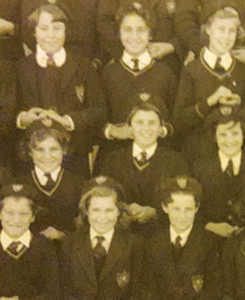
Trudy Kriven (centre) in Grade 7 at St Joseph’s School Tranmere.


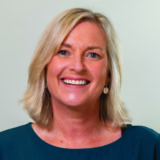
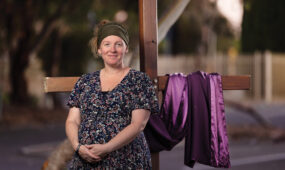
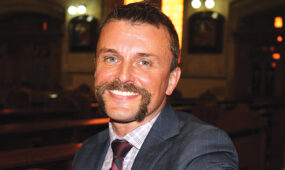
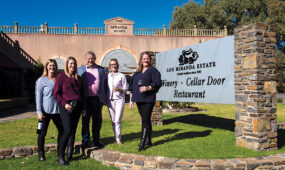
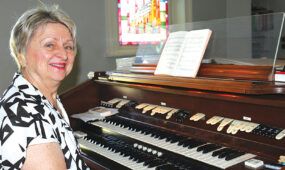

Comments
Show comments Hide comments